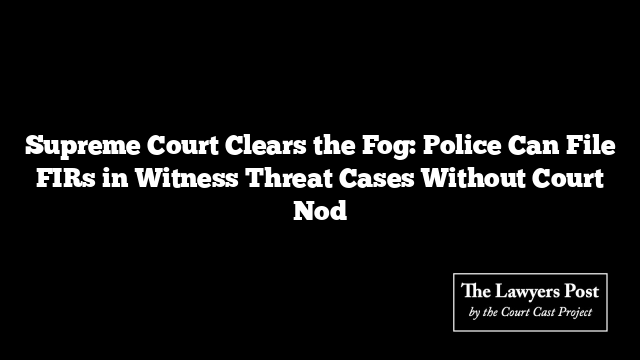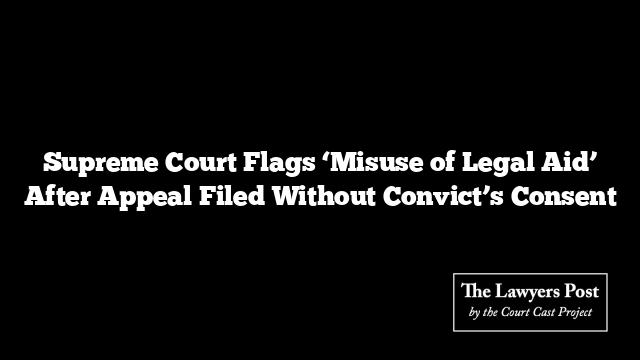In a significant ruling aimed at protecting witnesses from intimidation, the Supreme Court has made it clear that police do not need a written complaint from a court to register a case under Section 195A of the Indian Penal Code — the provision that criminalizes threats made to force a person to give false evidence.
A Bench led by Justices Sanjay Kumar and Alok Aradhe stated that because the offence under Section 195A is cognisable, the police have full authority to act once an aggrieved person files a complaint. Requiring the victim to first approach a court, the judges said, would only “cripple and hamper” the administration of justice.
The Court explained that confusion had arisen due to inconsistencies in the drafting of procedural laws — particularly between Section 195 of the Code of Criminal Procedure (CrPC) and Section 195A of the IPC. While Section 195(1)(b)(i) of the CrPC mandates a court’s written complaint for offences like perjury, the 2009 amendment introducing Section 195A IPC created an exception for witness intimidation cases.
“Insisting on a court’s complaint before the police can act would defeat the purpose of protecting witnesses,” the Bench observed, stressing that the law was deliberately framed to allow quick intervention by law enforcement.
The ruling came after conflicting interpretations from the Kerala and Karnataka High Courts, both of which had held that no criminal proceedings could begin under Section 195A without a court’s complaint. These judgments — involving threats to witnesses in separate murder cases — were overturned by the Supreme Court.
The apex court clarified that although Section 195A IPC had been grouped alongside non-cognisable offences like perjury, its nature as a cognisable crime remained intact. Therefore, police can file FIRs directly without waiting for court orders.
Importantly, the Court also pointed out that the related CrPC provision allowing a witness to file a complaint before a magistrate is supplementary, not mandatory. A threatened witness, it said, is free to approach the police for immediate protection and action.
The decision effectively ensures that witness protection is not buried in procedural red tape — a crucial clarification as India transitions to the Bharatiya Nyaya Sanhita (BNS), where Section 195A IPC is now replaced by Section 232.





